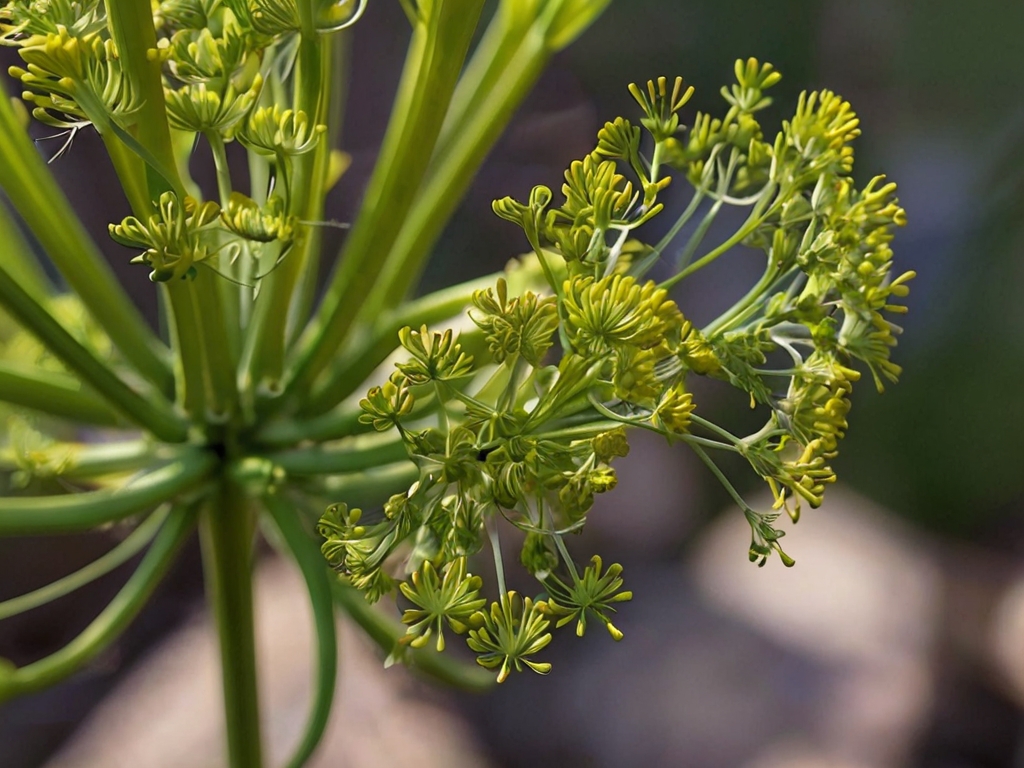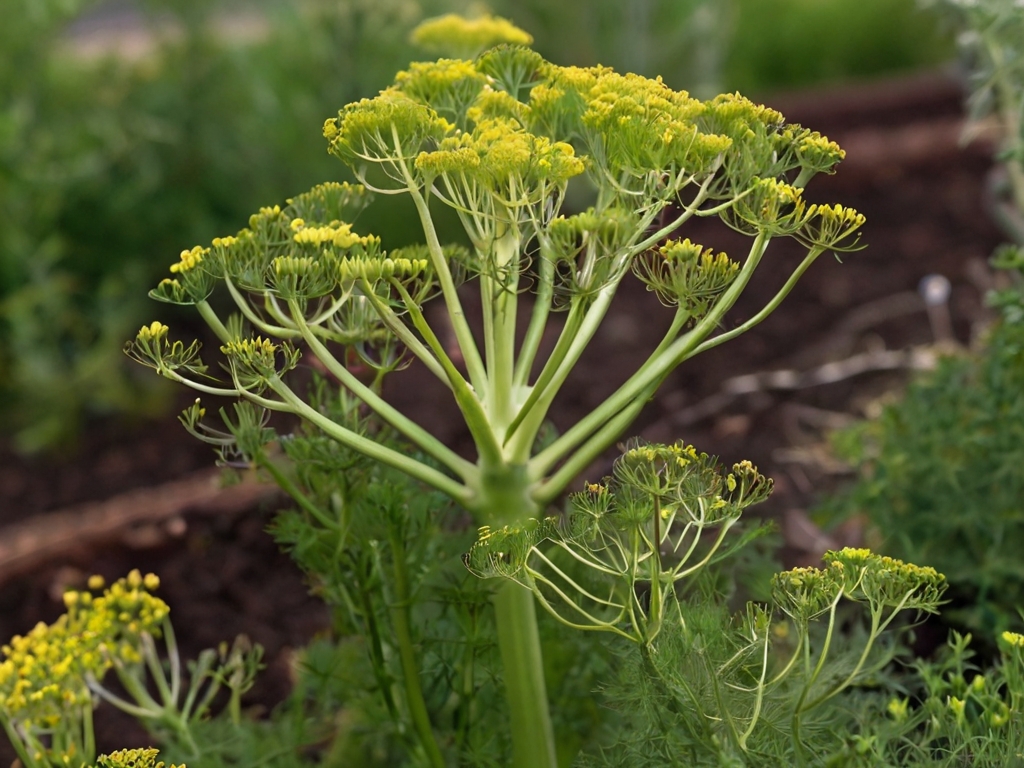Fennel is a versatile and aromatic herb commonly used in cooking and herbal medicine. It has a distinct anise-like flavor and is known for its digestive and anti-inflammatory properties. In addition to its culinary and medicinal uses, fennel can also be a valuable companion plant in your garden.
Table of Contents
Benefits of Growing Fennel Companion Plants
Growing fennel companion plants can provide a range of benefits for your garden.
Increased Yield
Firstly, companion plants can help increase the yield and quality of fennel. When grown together, certain plants can improve the soil’s overall health, leading to healthier and more productive fennel plants.

Natural Pest Control
Some companion plants can act as natural pest control. Some plants have properties that repel pests or attract beneficial insects that prey on pests. By interplanting these companion plants with fennel, you can minimize the requirement of chemical pesticides and create a balanced ecosystem in your garden.
Enhanced Pollination
Furthermore, growing fennel companion plants can enhance pollination. Many flowering companion plants attract bees, butterflies, and other pollinators essential for fennel reproduction and other garden crops. Increased pollination can lead to higher yields and better quality produce.
Lastly, some companion plants have culinary uses that complement fennel. Growing these plants together creates a harmonious garden where different flavors and aromas blend to enhance your culinary creations.
Companion Plants for Pest Control
Certain companion plants can help deter pests from fennel and create a more balanced ecosystem in your garden.
Marigold
Marigolds, for example, emit a strong scent that repels many common garden pests, including aphids, nematodes, and whiteflies. Planting marigolds near fennel can help protect it from these pests.
Dill
Dill is another beneficial companion plant for fennel. Beneficial insects like ladybugs and lacewings are attracted to fennel plants, as they feed on pests such as aphids that can harm the plant. Interplanting dill and fennel creates a natural pest control system, reducing the need for pesticides.
Nasturtium
Nasturtiums are also great companion plants for fennel. They attract aphids away from fennel and act as sacrificial plants, drawing pests away from the main crop. This can help protect your fennel plants from aphid infestations and reduce the need for chemical interventions.
For Soil Improvement
Some companion plants can help improve soil health and fertility, which benefits fennel and other garden crops.
Beans
Beans, for example, are nitrogen-fixing plants that can convert atmospheric nitrogen into a form other plants can use. Planting beans near fennel can help improve soil fertility and provide the nutrients for healthy growth.
Clover
Clover is another beneficial companion plant for fennel. It is a nitrogen-fixing plant that adds nitrogen to the soil, improving its fertility. Clover also acts as a living mulch, suppressing weeds and conserving moisture in the soil. Planting clover around fennel can help improve soil structure and nutrient availability.
Fennel Companion Plants for Pollination
Pollinators play a crucial role in the reproduction of fennel and other garden crops. You can enhance pollination and increase yields by planting companion plants that attract pollinators. Some companion plants that attract pollinators include:
Bee balm
Bee balm produces vibrant flowers that attract bees, butterflies, and hummingbirds. Planting bee balm near fennel can help attract pollinators and increase fruit set.
Lavender
Lavender is a beautiful flowering plant and a magnet for bees and butterflies. Planting lavender near fennel can help attract these beneficial insects and enhance pollination.
Borage
Borage is a herb with blue star-shaped flowers that are highly attractive to bees. Planting borage near fennel can help attract bees and increase pollination.
Companion Plants for Culinary Use
In addition to their benefits in the garden, some companion plants can also enhance the flavor of fennel dishes. Here are some herbs and vegetables that pair well with fennel in cooking:
Thyme
Thyme has a similar flavor profile to fennel and pairs well with it in soups, stews, and roasted dishes. Its earthy and aromatic notes complement the anise-like flavor of fennel.
Rosemary
Rosemary is a versatile herb that adds depth and complexity to fennel dishes. It pairs well with roasted fennel, potatoes, and other root vegetables.
Lemon
Lemon zest or juice can brighten up the flavor of fennel dishes and add a refreshing citrusy note. It pairs well with grilled or roasted fennel, salads, and seafood dishes.
Garlic
Garlic adds a savory and spicy flavor to fennel dishes. It pairs well with sautéed or roasted fennel, pasta dishes, and stir-fries.
How to Plant Fennel Companion Plants
To plant fennel companion plants, follow these steps:
1. Choose a suitable location for your fennel and companion plants. Fennel prefers full sun and well-drained soil.
2. Prepare the soil by removing weeds or debris and loosening it with a garden fork or tiller.
3. Dig a hole for each plant, spacing them according to their specific requirements and following the recommended spacing guidelines for each plant.
4. Place the companion plants in the holes and backfill with soil, firming it gently around the roots.
5. Water the plants thoroughly after planting to help them establish.
6. Mulch around the plants to conserve moisture and suppress weeds.
Tips for Growing Fennel Companion Plants
To ensure the success of your fennel companion plants, follow these tips:
1. Water your plants regularly, especially during dry periods. Fennel and its companion plants prefer consistent moisture but avoid overwatering, which can lead to root rot.
2. Fertilize your plants with organic matter or a balanced fertilizer to provide the necessary nutrients. Avoid using chemical fertilizers, as they can harm beneficial insects and disrupt the natural balance of your garden.
3. Prune your fennel and other plants regularly to maintain their shape, improve air circulation, and prevent diseases from spreading due to overcrowding.
4. Watch for common pests and diseases affecting the fennel and its companion plants. Early detection and intervention can help prevent the spread of pests and minimize damage.
5. Rotate your crops each year to prevent the buildup of pests and diseases in the soil. This will also help maintain soil fertility and to avoid nutrient depletion.
Enhancing Your Garden with Companion Plants
In conclusion, growing fennel companion plants can provide a range of benefits for your garden. By strategically planting certain plants next to fennel, you can increase its yield and quality, improve soil health, deter pests, enhance pollination, and enhance the flavor of your culinary creations.
Companion planting is a natural and sustainable gardening technique that has been used for centuries. It promotes biodiversity, reduces the need for chemical interventions, and creates a more balanced ecosystem in your garden.
Experiment with different combinations of fennel companion plants and see how they can enhance the health and productivity of your garden. By embracing sustainable gardening practices like companion planting, you can create a thriving and environmentally friendly garden that benefits you and the planet.

